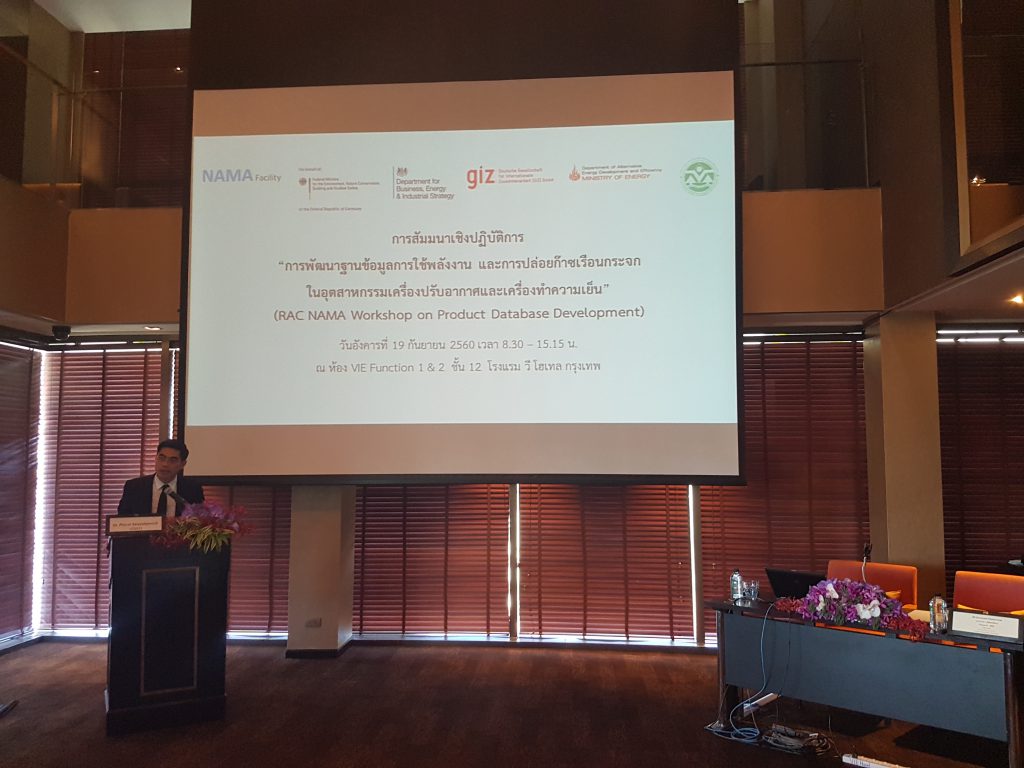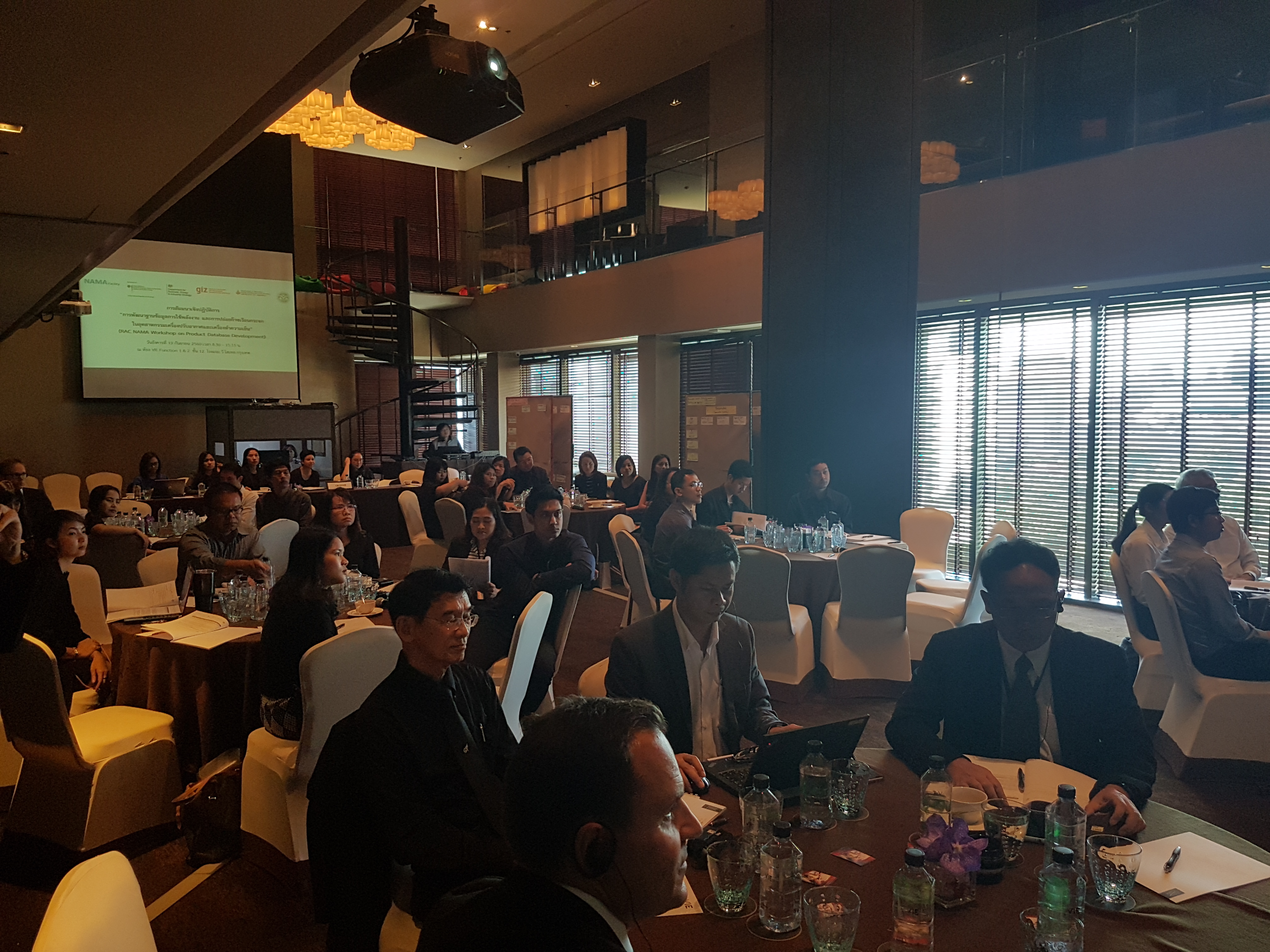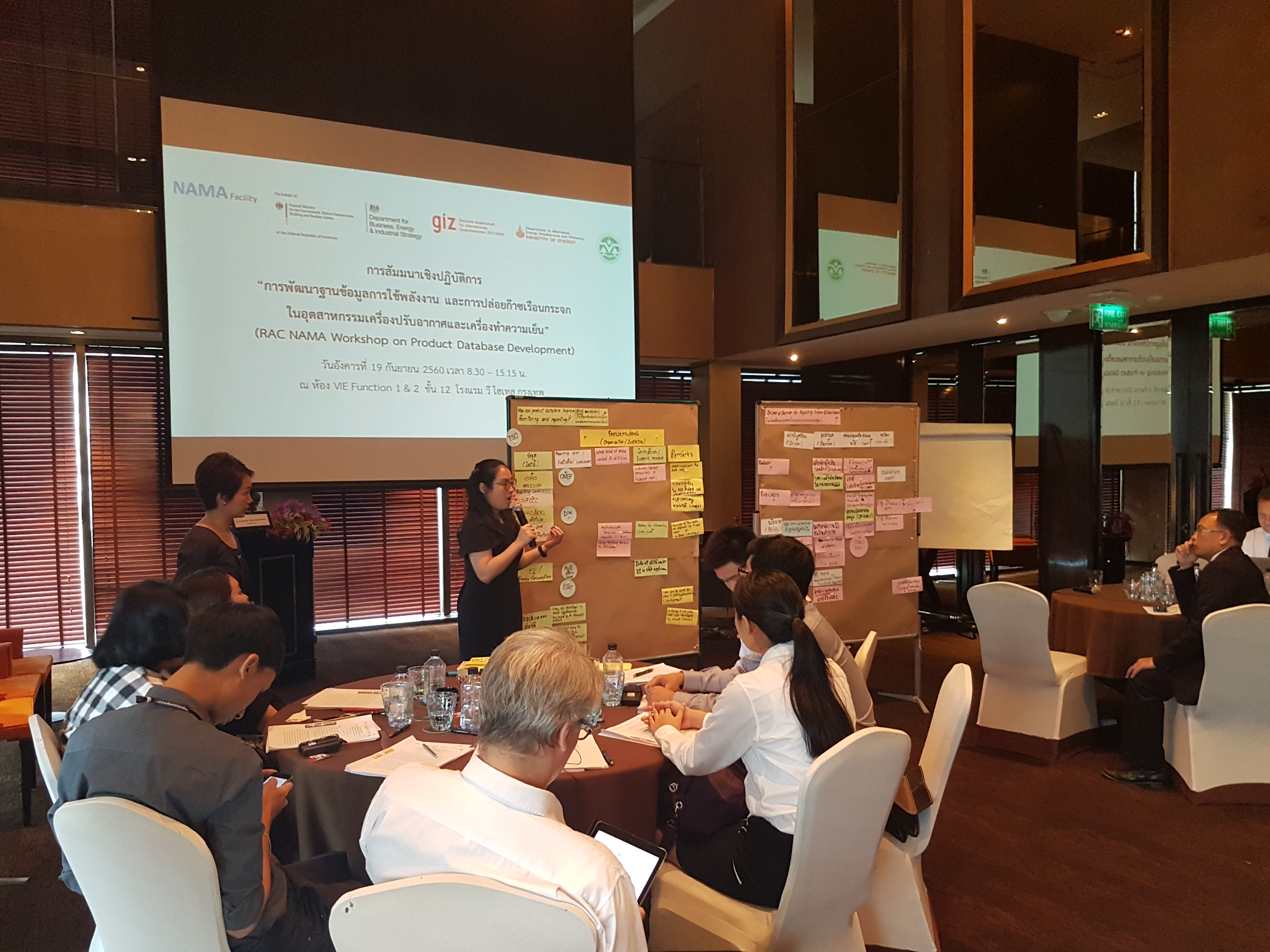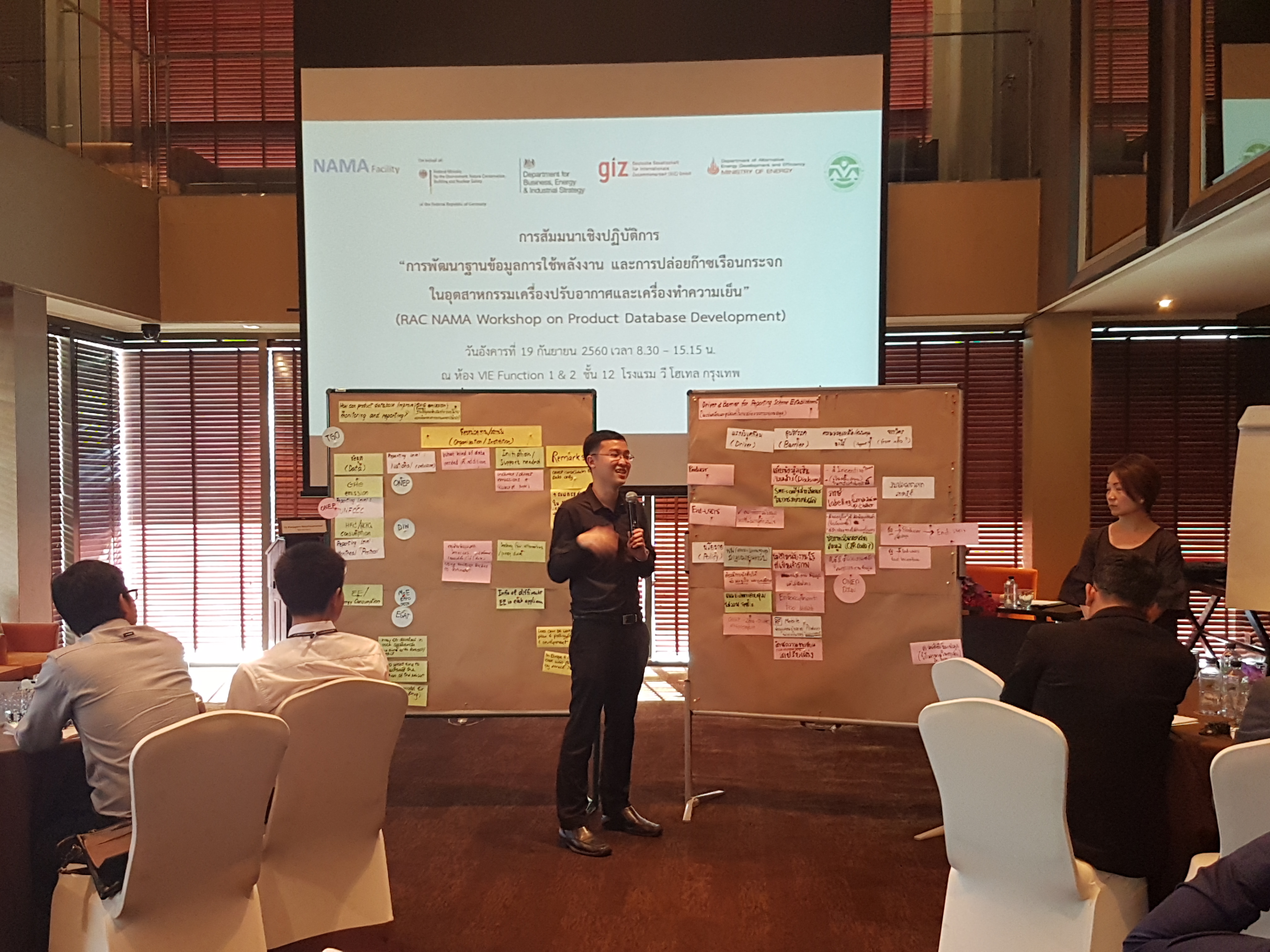Office of Natural Resources and Environmental Policy and Planning (ONEP) and GIZ organised a workshop on “Product Database Development in RAC sector” to review and discuss the current practice of the country to monitor energy consumption and GHG emissions of RAC appliances, and to explore the options how this can be extended in the future. The seminar was held on 19 September 2017 at Vie Hotel Bangkok. There were participants from key stakeholders including the government and the private sector, for example the Department of Alternative Energy Development and Efficiency (DEDE), the Department of Industrial Works (DIW), the Electricity Generating Authority of Thailand (EGAT), the Electrical and Electronics Institute (EEI) and the Federation of Thai Industries (Air-Conditioning and Refrigeration Industry Club).
The objectives of the workshop are 1.) To demonstrate case study from other countries of central database and data collection, 2.) To highlight importance and benefits of database in RAC sector for national planning and reporting, and 3.) To discuss and brainstorm involved parties on developing the product database
A growing number of countries have realized that a central product database can be a very powerful and cost-effective instrument to continuously and systematically monitor and project the energy consumption and GHG impact of electrical appliances. With an integrated approach, a product database can help to monitor the GHG impact of RAC appliances from both the consumption of energy and refrigerants.
Documents for download
– Agenda
– Key features/ outputs and benefits of a product database (HEAT)
– Overview of EGAT’s product database (EGAT)
– Integrated approach, combining EE database with F-Gas reporting requirements to use for RAC sector models and GHG reporting (HEAT)
– NDCs and sectoral GHG reporting and monitoring (ONEP)
– Current and future reporting on HCFCs and HFCs (DIW)
all documents can be found on https://goo.gl/Pz1Ff4





